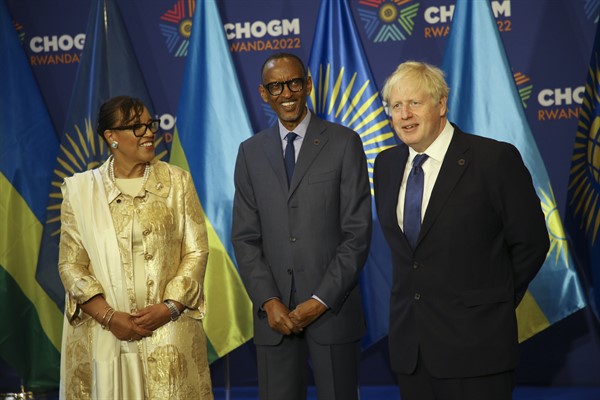After having been twice postponed due to the coronavirus pandemic, the 26th Commonwealth Heads of Government Meeting, or CHOGM, opened today in Kigali, Rwanda. The gathering will feature high-level meetings of government leaders from the Commonwealth of Nations, a 54-member association of countries, most of which are former territories of the British Empire.
In addition to more than 35 heads of state and government from Africa, Asia, the Pacific Islands, the Americas and the Caribbean, this year’s meeting—the first in Africa since 2007—will be attended by an estimated 8,000 guests, including official delegations and top business executives. The leaders’ summit was also preceded by events involving representatives of youth, women, civil society and business groups from Commonwealth countries. At the end of this year’s leaders meeting, Rwandan President Paul Kagame is expected to take over from British Prime Minister Boris Johnson as the chair of the Commonwealth for the next two years.
CHOGM’s high-profile guests arrived in Kigali just days after the controversial migration partnership agreement Rwanda signed with the United Kingdom made renewed headlines, when the first planned flight transporting refugees from the U.K. to Rwanda was ultimately canceled after an 11th-hour intervention from the European Court of Human Rights. But undeterred by the astonishing scenes of refugees being removed from the airplane moments before the scheduled takeoff—a scene that one of the would-be passengers compared to a last-minute reprieve from an execution—Johnson’s government is vowing to press ahead with the migration pact, and the possibility of London’s withdrawal from the ECHR has even been raised. Britain’s portrayal of Rwanda as a safe haven to which anyone the U.K. deems has entered British territory illegally can be deported has drawn fire from a range of critics, who point to Rwanda’s dismal human rights record, among other criticisms of the deal.

